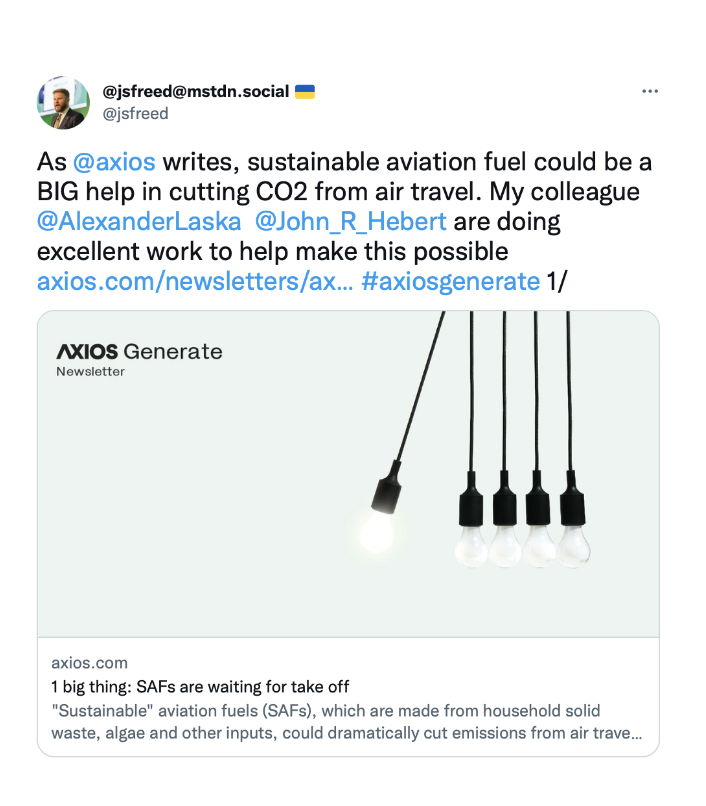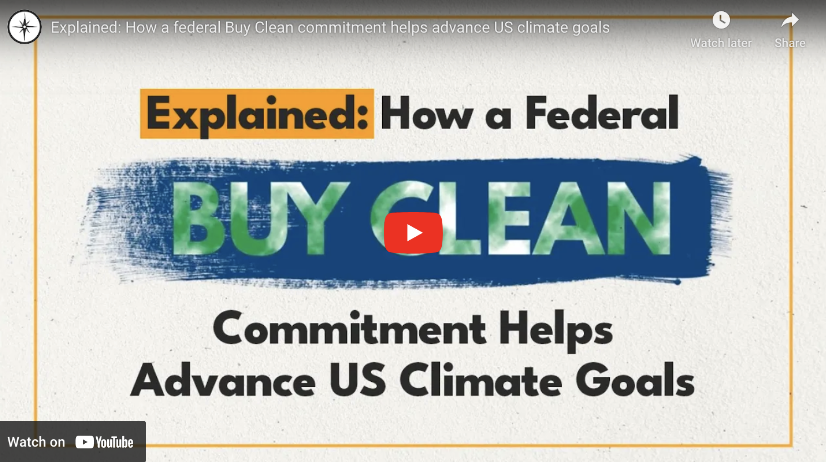On the Grid: Progress, Not Politics 12/09/22

Click HERE to subscribe to this weekly newsletter.
As 2022 winds toward its close, we wanted to highlight a handful of places where progress on energy issues is notable. This includes lower oil (and gasoline) prices helping ease inflationary pressures on the economy, as well as important government actions to improve the advanced domestic nuclear supply chain and expand demand for clean building products. We’ll lead, however, with a critical issue that unfortunately looks like it will have to be taken up again in 2023: permitting reform.

This week, the annual National Defense Authorization Act (NDAA) was released with one notable exception: permitting reform. Congress’s inability to pass permitting reform to complement the $500 billion in clean energy investments in the Bipartisan Infrastructure, Inflation Reduction, and CHIPS and Science Acts is a real problem.
As our Decarb America modeling lays out, the United States needs to embark on an enormous buildout of clean energy infrastructure, including new transmission, renewable, carbon management, advanced nuclear, existing nuclear, clean fuels, and manufacturing projects over the next decade. This is the only way to make our energy system affordable, reliable, secure, and clean and provide American communities with the benefits they require. We cannot do that if the current regulatory environment adds years and millions and millions of dollars to projects.
Senator Joe Manchin, who is leading the charge to speed up the permitting processes, released an amended version of the bill to streamline the permitting process for clean energy projects. Here are a few of the key points in Manchin’s revised bill:
- Stronger Timelines: Enforced and firmer deadlines, expedited judicial review, and tightened environmental review requirements will establish a predictable timeline for energy infrastructure projects.
- Accelerating Transmission Projects: By allowing the Federal Energy Regulatory Commission (FERC) to designate transmission projects to be in the national interest after giving states one year to act, we can accelerate the build-out of transmission lines to carry carbon-free energy across the country.
- Adding Priority: Under the amended bill, the President is required to set, and periodically update, a list of 25 specific clean energy projects designated for high-priority review. This will help focus resources on strategically important energy projects like critical mineral extraction, carbon capture, carbon-free electric generation, and hydrogen projects.
If the 117th Congress doesn’t act, this would be a good place for the next Congress to start.

This week, the Department of Energy (DOE) unveiled the high-assay low-enriched uranium (HALEU) consortium, designed to support public and private sector efforts to develop a domestic HALEU supply chain. Given Russia’s long-held monopoly on commercially available HALEU, the consortium is taking concrete steps to help reduce our dependence on Russian fuel exports.
Coupled with the Senate Foreign Relations Committee’s recent passage of the International Nuclear Energy Act, designed to help the US nuclear industry compete with Russia and China, it’s evident that the path for American nuclear energy is moving in the right direction.
You can check out our HALEU series page here to learn more about different policies, like the International Nuclear Energy Act, which helps ensure a reliable fuel supply for the next generation of reactors.

Oil prices are down over 50% since the summer, and gas prices are trending down toward $3 per gallon. But despite this, we have to temper expectations amid growing uncertainty.
Here’s Why: The US and Europe’s decision to cap the cost of seaborne oil exported from Russia at $60 a barrel took effect this week. The oil cap is still in its early days and it's unclear what effect this will have on energy markets. But the real pressure will likely emerge as China, the largest oil importer, eases long-upheld COVID restrictions. As one of the largest economies in the world begins to thaw, energy demands are expected to tighten.

This week, the Biden Administration announced a federal Building Performance Standard. The first of its kind, the standard will electrify equipment and appliances in 30% of the 300,000 federally owned building space by 2030 and work to electrify all new buildings and those currently undergoing major renovations.
As the largest building manager in the US, the federal government is working to achieve net-zero buildings by 2045 by leveraging federal procurement power and policies like the Building Performance Standard and Buy Clean to shrink their carbon footprint. Check out our Buy Clean explainer to learn more about the efforts to curb federal emissions.

Elections in 2022, both stateside and internationally, made one thing clear: mainstream beats extreme. Whether you’re looking at President Macron’s victory over far-Right Marine Le Pen, Brazil’s shift toward the center to oust extremist Brazilian President Jair Bolsonaro or America’s midterm elections where Democrats exceeded expectations, it’s evident that candidates that back mainstream policies are wildly successful.
Josh Freed, Senior Vice President for Third Way’s Climate and Energy program, contextualized America’s recent midterm election, outlining winning strategies for the Democratic Party in the UK’s NE Global Media this past weekend. What got the job done? Running on an agenda that addressed American voters’ top priorities. Over the last two years, Democrats in Congress delivered policies that spoke to voters’ concerns around inflation, job creation, and ongoing energy issues, while Republican candidates followed a more extreme route. And voters made their preferences clear at the ballot box.

- Eric Levitz, in New York Magazine, lays out the details of Senator Manchin’s proposal for permitting reform and outlines how regulatory obstacles for energy infrastructure are stifling decarbonization, presenting an enigma for policymakers who staunchly support a clean energy transition but oppose comprehensive permitting reform.
- Ted Nordhaus and Juzel Lloyd, in the International Monetary Fund’s December Finance and Development issue, discuss the resurgence of nuclear energy amid rising energy security concerns and the value of nuclear energy in addressing climate challenges.
- Third Way’s Senior Vice President for Climate and Energy, Josh Freed, sits down with Kit Magazine to discuss elections, the economic benefits that clean energy investments can unlock, and opportunities for international cooperation.

The clean energy policy conversation is expanding…and so are we! The Climate and Energy Program is looking for people with talent and a passion for climate solutions to fill two new roles on our team. If you’ve got anyone in your mental Rolodex who you think might be a fit, please send them our way. And if you wanted to circulate these job postings more broadly with your networks, we wouldn’t mind that either!
Deputy Director: This person will directly supervise 3-4 policy experts working in fields that could include clean energy innovation, industrial decarbonization, and carbon management. They’ll guide these direct reports in developing policy and advocacy strategies that ensure US energy is clean, reliable, affordable, and secure. This person will contribute to program-wide strategy and represent Third Way in public events, coalitions, and high-level meetings. Our ideal candidate will have 5+ years of energy policy experience and experience managing staff.
Policy Advisor for Innovation: This team member will take the lead on our cross-cutting efforts in clean energy innovation. That includes working on implementation of demonstration, financing, and other DOE programs; developing recommendations to advance energy innovation across federal agencies; and building support for RD&D funding priorities. Our ideal candidate will have 3+ years of experience in a relevant field. Job responsibilities can be scaled for candidates with exceptional qualifications.

Josh Freed, Third Way’s Senior Vice President for Climate and Energy, highlights the importance of sustainable aviation fuel for our decarbonization and security goals.

Subscribe
Get updates whenever new content is added. We'll never share your email with anyone.



